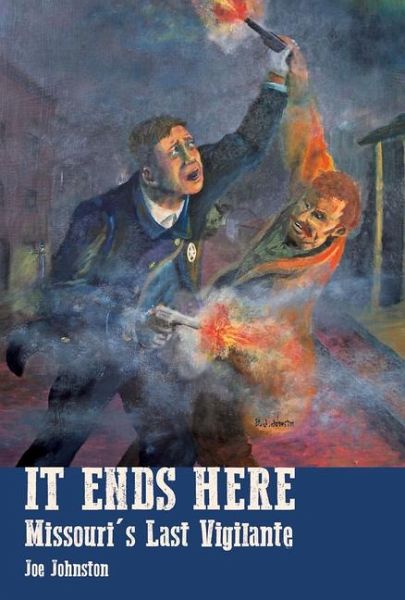
It Ends Here
The Last Missouri Vigilante
Versandkostenfrei!
Versandfertig in über 4 Wochen
19,99 €
inkl. MwSt.

PAYBACK Punkte
10 °P sammeln!
In early January 1904, a reporter for the" St. Louis""Post-Dispatch" braved the winter chill, traveling to the Missouri State Penitentiary for a big story an interview with the Thorny Rose, Laura Bullion, who was convicted of forgery. But the real story was that she and her boyfriend Ben Kilpatrick had been bank robbers and members of Butch Cassidy s Wild Bunch. After eluding the law for years in several western states, they fled to St. Louis, where their freedom lasted only a few months, thanks to good police work and tips from alert citizens. After the article about Bullion was in print, the...
In early January 1904, a reporter for the" St. Louis""Post-Dispatch" braved the winter chill, traveling to the Missouri State Penitentiary for a big story an interview with the Thorny Rose, Laura Bullion, who was convicted of forgery. But the real story was that she and her boyfriend Ben Kilpatrick had been bank robbers and members of Butch Cassidy s Wild Bunch. After eluding the law for years in several western states, they fled to St. Louis, where their freedom lasted only a few months, thanks to good police work and tips from alert citizens. After the article about Bullion was in print, the reporter took a train to Oklahoma City for his next assignment, an interview with Ed O Kelley, the man who killed Robert Ford, proud assassin of Jesse James. The reporter and the vigilante met on the dusty streets in the former Indian Territory, where statehood was still three years off. O Kelley, who was a forgotten relic of the Wild West, described how he was a friend of the James family and married a cousin of the infamous Younger Brothers. Though O Kelley had a chance to join their gang, he declined, choosing instead to leave his native Missouri. In Kansas and Colorado he served as a lawman, using violent tactics that earned him a reputation as a man with a quick temper, a ready gun, and a penchant for bending the law to suit his needs. In a series of meetings the reporter struggled to keep O Kelley sober enough to tell his tale. Gradually he described a great circle of vigilantism, from the Civil War to Jesse James s outlaw career, to the murder by Ford, to O Kelley s revenge for the killing. Ford had thought he would be a hero for killing James, but he was reviled everywhere he went. Unable to settle down, he finally opened a saloon in a tent at the mining camp of Creede, Colorado, which happened to also be the home of O Kelley. He thought Ford was the worst kind of vermin, and the local silver miners encouraged him to avenge his old friend Jesse. In a tragic twist of irony, he thought, like Ford before him, that he d be a hero. After he ambushed Ford, killing him with a point-blank shotgun blast, he was arrested and spent twenty years in prison before his friends finally won his pardon. He was released a broken man, his dream gone, entering a modern world of telephones and streetcars that cared little about his exploits. Even on the whiskey-drenched backstreets of Oklahoma City he found no peace. The night before his last meeting with the reporter, a drunken O Kelley was killed in a prolonged street fight and shootout with an Oklahoma City policeman. Just a month later, back in St. Louis, the reporter covered the capture of William Rudolph and George Collins, popularly known as the Missouri Kid and Black Frank. Adoring women crowded the streets to see the handsome bank-robbing murderers who evaded escape across a dozen states. The reporter knew that the court of public opinion would love to see them freed. But the wheel of justice had turned. Relentless detectives brought them in, a stout jail held them, and the court sent them both to be hanged with the same rope. As the reporter witnessed the execution he pondered America s progress beyond vigilantism. Was O Kelley the last vigilante standing? We always think it ends here, he wrote. But it never does. This title is narrative nonfiction and the third in the Missouri Vigilantes series following Johnston s 2011 book "The Mack Marsden Murder Mystery: Vigilantism or Justice?" and 2014 s "Necessary Evil: Settling Missouri with a Rope and a Gun."" ""


